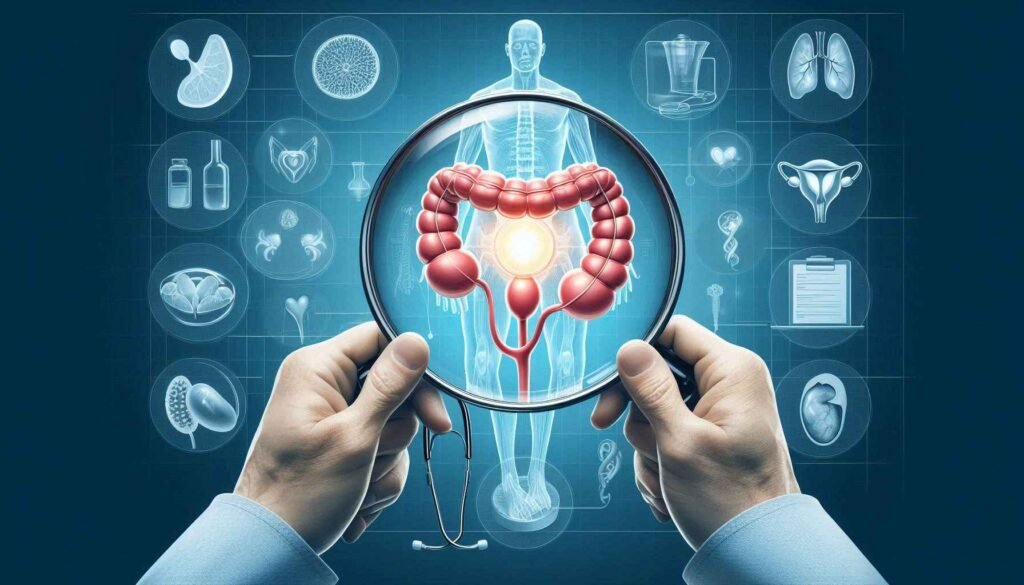
Managing Menopausal Symptoms Naturally: Diet and Lifestyle Changes
Menopause is a natural phase in every woman’s life, marking the end of the menstrual cycle. It typically occurs between the ages of 45 and 55, and while it is a normal part of aging, the symptoms can sometimes be challenging. Hot flashes, night sweats, mood swings, and weight gain are common issues that arise during this time. Fortunately, these symptoms can be managed effectively through natural approaches like dietary changes and lifestyle adjustments. In this comprehensive guide, we’ll explore how diet and lifestyle changes can help you manage menopausal symptoms naturally.
1. Understanding Menopause
Menopause occurs when a woman’s ovaries stop producing eggs, leading to a decline in estrogen levels. This hormonal shift can bring about a variety of symptoms, including:
- Hot flashes: Sudden feelings of warmth, often accompanied by sweating.
- Night sweats: Intense sweating during sleep that can disrupt rest.
- Mood swings: Emotional changes such as irritability or anxiety.
- Weight gain: A slower metabolism leading to difficulty maintaining a healthy weight.
- Sleep disturbances: Difficulty falling or staying asleep due to hormonal changes.
The experience of menopause is unique to each woman. Some may have mild symptoms, while others might struggle with more severe challenges. Natural approaches, such as dietary changes and lifestyle modifications, can help mitigate these symptoms.
2. The Role of Diet in Managing Menopause
What you eat can significantly affect how you experience menopause. A diet that is rich in specific nutrients and low in triggers can help alleviate symptoms and support overall well-being.
Increase Plant-Based Foods
A plant-based diet is one of the most effective ways to manage menopausal symptoms. Fruits, vegetables, legumes, and whole grains provide essential vitamins, minerals, and antioxidants that help reduce inflammation and combat oxidative stress, which is linked to menopausal symptoms like hot flashes and mood swings.
Key Plant-Based Foods for Menopause:
- Leafy greens: Rich in calcium and magnesium, these help maintain bone health and reduce stress.
- Berries: High in antioxidants, they support heart health and reduce inflammation.
- Legumes: Beans, lentils, and chickpeas provide phytoestrogens, which mimic estrogen in the body and can reduce symptoms like hot flashes.
- Whole grains: Help stabilize blood sugar levels, reducing irritability and fatigue.
Phytoestrogens: Nature’s Hormone Helpers
Phytoestrogens are plant compounds that mimic estrogen in the body. They can help balance hormone levels and alleviate symptoms such as hot flashes and night sweats. Foods rich in phytoestrogens include:
- Soy products: Tofu, edamame, and soy milk are excellent sources of phytoestrogens.
- Flaxseeds: Ground flaxseeds can be added to smoothies, yogurt, or baked goods to boost phytoestrogen intake.
- Sesame seeds: These tiny seeds pack a punch when it comes to phytoestrogen content.
While some studies suggest that phytoestrogens can reduce menopausal symptoms, it’s essential to consume them consistently over time to see noticeable effects.
Healthy Fats for Hormone Balance
Not all fats are bad—especially when it comes to managing menopause. Omega-3 fatty acids, in particular, are known to reduce inflammation and support heart health, both of which are crucial during menopause. These fats can also help manage mood swings and reduce the frequency of hot flashes.
Sources of Healthy Fats:
- Fatty fish: Salmon, mackerel, and sardines are rich in omega-3 fatty acids.
- Chia seeds: A plant-based source of omega-3s, these tiny seeds can be added to almost any dish.
- Nuts and seeds: Walnuts, flaxseeds, and almonds provide both omega-3s and essential minerals like magnesium and calcium.
Calcium and Vitamin D: Bone Health Essentials
One of the most significant concerns during menopause is the loss of bone density due to lower estrogen levels. This can lead to an increased risk of osteoporosis and fractures. To combat this, it’s essential to consume enough calcium and vitamin D.
Calcium-Rich Foods:
- Leafy greens: Kale, spinach, and broccoli are excellent non-dairy sources of calcium.
- Fortified plant-based milks: Many almond, soy, and oat milks are fortified with calcium.
- Tofu: A versatile, calcium-rich soy product that can be used in a variety of dishes.
Vitamin D is just as important as calcium when it comes to maintaining bone health, as it helps the body absorb calcium. While sun exposure is a natural way to get vitamin D, it’s also found in foods like:
- Fatty fish: Salmon, tuna, and mackerel are great sources of vitamin D.
- Fortified foods: Some plant-based milks, orange juices, and cereals are fortified with vitamin D.
Foods to Avoid
Certain foods can exacerbate menopausal symptoms, and reducing or eliminating them from your diet can help manage discomfort.
- Caffeine: Caffeine can trigger hot flashes and disrupt sleep. Limiting your intake or switching to decaf can make a big difference.
- Alcohol: Alcohol is known to trigger hot flashes and night sweats, and it can also interfere with sleep. Reducing alcohol consumption can help alleviate these symptoms.
- Sugary and processed foods: These can lead to weight gain and mood swings. Opt for whole, unprocessed foods to maintain stable energy levels.
3. Lifestyle Changes for Menopause Symptom Relief
In addition to dietary changes, lifestyle modifications can significantly impact how you experience menopause. Simple shifts in daily habits can help you manage symptoms more effectively.
Stay Active with Regular Exercise
Exercise is a powerful tool for managing menopausal symptoms. Regular physical activity can help control weight, improve mood, reduce the frequency of hot flashes, and support bone health.
Types of Exercise to Consider:
- Cardiovascular exercise: Activities like walking, swimming, or cycling can help manage weight and reduce the risk of heart disease.
- Strength training: Lifting weights or doing bodyweight exercises can help maintain muscle mass and bone density.
- Yoga and Pilates: These mind-body practices can reduce stress, improve flexibility, and alleviate menopausal symptoms like anxiety and sleep disturbances.
Stress Management: The Key to Emotional Balance
Menopause can bring about mood swings and increased anxiety due to hormonal fluctuations. Managing stress is crucial to maintaining emotional balance during this time.
Effective Stress-Management Techniques:
- Meditation: Practicing mindfulness and meditation can help calm the mind and reduce anxiety.
- Deep breathing exercises: These can help reduce the intensity of hot flashes and promote relaxation.
- Massage and acupuncture: Both of these therapies have been shown to reduce stress and alleviate menopausal symptoms like hot flashes and mood swings.
Prioritize Sleep
Sleep disturbances are common during menopause, often caused by night sweats and hormonal imbalances. Creating a sleep-friendly environment and adopting good sleep hygiene practices can improve your rest.
Tips for Better Sleep:
- Keep your bedroom cool: A lower room temperature can help reduce night sweats and improve sleep quality.
- Establish a bedtime routine: Going to bed at the same time each night and creating a relaxing pre-sleep routine can signal to your body that it’s time to wind down.
- Avoid caffeine and alcohol: Both of these can interfere with sleep, so it’s best to avoid them in the hours leading up to bedtime.
Quit Smoking
Smoking can worsen many menopausal symptoms, including hot flashes and mood swings. It also increases the risk of heart disease and osteoporosis. Quitting smoking can have a significant positive impact on your health during menopause and beyond.
4. Natural Remedies and Supplements for Menopause
In addition to dietary and lifestyle changes, certain natural remedies and supplements can help manage menopausal symptoms. However, it’s essential to consult with a healthcare provider before starting any new supplement.
Herbal Remedies
Several herbs have been traditionally used to alleviate menopausal symptoms. While research is ongoing, some women find relief with the following:
- Black cohosh: This herb is commonly used to reduce hot flashes and night sweats.
- Red clover: Contains phytoestrogens, which may help balance hormone levels.
- St. John’s wort: Often used to manage mood swings and mild depression.
Nutritional Supplements
In addition to calcium and vitamin D, other supplements can support overall health during menopause:
- Vitamin B6: Helps regulate hormonal activity and may reduce mood swings.
- Magnesium: Supports bone health, reduces muscle cramps, and promotes relaxation.
- Omega-3 fatty acids: These can reduce inflammation and improve heart health.
5. Conclusion
Managing menopause symptoms naturally through diet and lifestyle changes is an empowering way to take control of your health during this transition. By focusing on a nutrient-dense, plant-based diet, incorporating healthy fats, and staying active, you can reduce the intensity of symptoms like hot flashes, mood swings, and weight gain. Additionally, managing stress, getting enough sleep, and considering herbal remedies can further improve your quality of life during menopause.
While menopause is a natural phase of life, it doesn’t have to be overwhelming. With the right approach, you can navigate this transition with ease and embrace the next chapter of your life feeling strong, healthy, and balanced.



